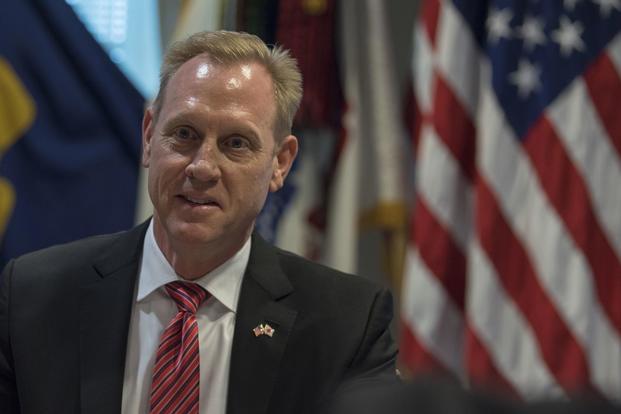Sending two Navy ships, thousands of Marines and B-52 Stratofortress bombers to the Middle East "put a hold" on potential plans for Iranians to attack U.S. troops, the acting defense secretary said Tuesday.
Acting Defense Secretary Patrick Shanahan defended the Pentagon's move to carry out a joint show of force in the Persian Gulf last weekend, telling reporters it gave the Iranians "time to recalculate."
"I think our response was a measure of our will and our resolve that we will protect our people and our interests in the region," he said.
The Navy's aircraft carrier Lincoln strike group and the amphibious assault ship Kearsarge carried out training operations in the region last weekend. F/A-18 Super Hornets, AV-8B Harriers and attack helicopters conducted air-to-air combat and close-air support training. Members of the 22nd Marine Expeditionary Unit also conducted fast-rope training to board enemy ships.
The training, Rear Adm. John Wade, Carrier Strike Group 12's commander, was aimed at "deterring destabilizing actions" in the region.
Pentagon and White House officials have been pressed to explain the threats U.S. troops were said to face from Iran after National Security Adviser John Bolton issued a May 5 statement about "troubling and escalatory indications and warnings."
Shanahan on Tuesday stood by those assessments.
"I really want to underscore the credibility of the intelligence," he said.
Shanahan, along with Secretary of State Mike Pompeo and Chairman of the Joint Chiefs Gen. Joseph Dunford, met with members of Congress on Tuesday for closed-door briefings on the Iran security threats.
Though he said he considers the absence of attacks on Americans "a hold," it doesn't mean the threat has ended.
"We're in a period where the threat remains high," Shanahan said. "... I just hope Iran is listening. We're in the region to address many things, but it is not to go to a war with Iran."
-- Gina Harkins can be reached at gina.harkins@military.com. Follow her on Twitter @ginaaharkins.













